Japanese music fans used to favor artists from Europe and America when Western culture was still respected. However, that trend is shifting. Instead, the Western-influenced Korean K-pop wave is increasingly popular with Japanese people as they look for a new breeze besides domestic J-pop.
That’s not all, even J-pop is making notable strides thanks to catchy tunes that go viral on social media. This makes the competition for Western music in the Japanese market increasingly fierce. Even songs by Taylor Swift, who had successful concerts in Tokyo in February 2024, did not reach high rankings in Japan.
“I stopped listening to Western music. But this habit changed naturally as I caught up with popular trends,” a 23-year-old graduate student told Nikkei.
Now, he often listens to K-pop songs while commuting or at home. His Spotify playlist is filled with songs by K-pop groups like NewJeans and IVE.
Young Japanese gradually "turn away" from European and American music.
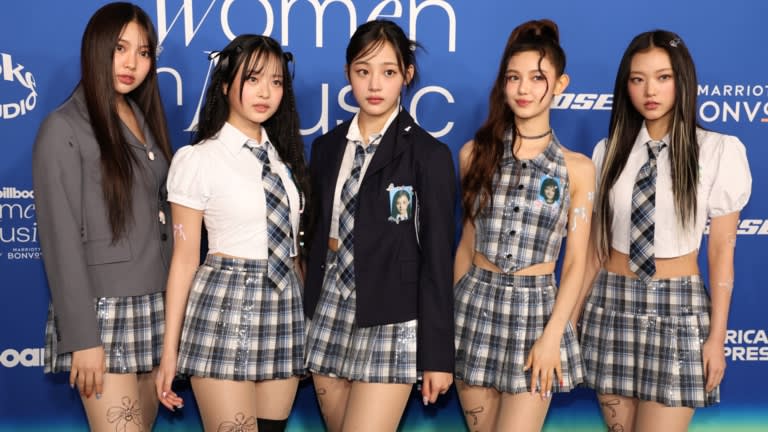
K-pop groups like NewJeans are gaining popularity in Japan. Photo: Reuters.
In 2023, not a single Western song made it into the top 100 most-streamed songs in Japan on Apple Music. Even with streaming and physical CDs included, Western music accounted for just 0.3% of the Billboard Japan Hot 100 weekly chart in 2023, up from 29.8% in 2008.
Taylor Swift's "Anti-Hero" topped the US Billboard weekly chart, but failed to peak higher than No. 34 in Japan.
On the contrary, when K-pop emerged, songs in this genre were continuously recognized. In 2018 alone, K-pop accounted for 14.2% of the top 100 songs in the land of cherry blossoms, surpassing Western songs which only reached 8.8%.
“K-pop has complemented the demand for Western music,” said Ko Matsushima, president of Japan-based music marketing firm Arne. Many K-pop songs are incorporating English lyrics and other elements from Western music as American producers become increasingly involved in South Korean music production.
Furthermore, Matsushima points out, Japanese songs are also increasingly going viral on TikTok and achieving great success. Songs by artists like Ado and Yoasobi regularly appear in the top 10 charts. “As a result, Western songs are being pushed off the charts,” Matsushima says.
“The demand for Western music used to come from Japanese admiration for the West. Nowadays, people are listening to music without paying much attention to its origin,” said Nobuhiko Kakihara, CEO of Universal Music Japan.
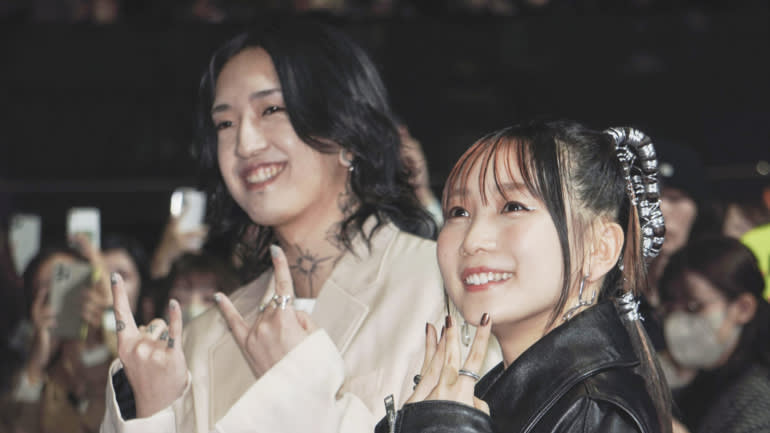
Vocalist Ikura of Japanese duo Yoasobi (right) and composer Ayase in 2023. Photo: Kyodo
Years ago, Western bands like the Beatles captured the hearts of Japanese youth, becoming icons of admiration. European and American music remained popular into the 1990s, influencing mainstream Japanese artists as they created music with similar inspiration.
However, that admiration has faded as psychological boundaries have blurred. Young Japanese people no longer care too much about the nationality of artists, but simply enjoy the popular tunes on social media, or the music genres they feel familiar with.
The Japanese market has unique characteristics in terms of the types of music that are popular. Popular songs tend to be easy to listen to, with catchy, recognizable melodies or frequently repeated phrases, according to Universal Music’s Kakihara. Rap, which often charts well in the U.S., has struggled to gain traction in Japan, where melodies are more important, he said.
Comparing the songs’ “talkiness” (a measure Spotify created to analyze the number of words a track contains), popular songs in the US tend to have more words than songs in Japan. They’re also shorter. The average length of the top 100 songs in the US in 2023 was about 3.2 minutes, while the same number in Japan was closer to 4 minutes.
Another thing to note is that while streaming accounts for 90% of the music market in the US, CDs and other physical media still account for 60% of sales in Japan. Part of the reason is the strong demand for CDs that come with bonuses like tickets to idol-meeting events.
Record labels are scrambling to come up with new marketing ideas. When Taylor Swift visited Tokyo in February 2024, Universal Music set up countless banners in the middle of the bustling Shibuya district reading “Taylor Swift, Welcome to Japan!” and played her songs over speakers installed on the main shopping street.
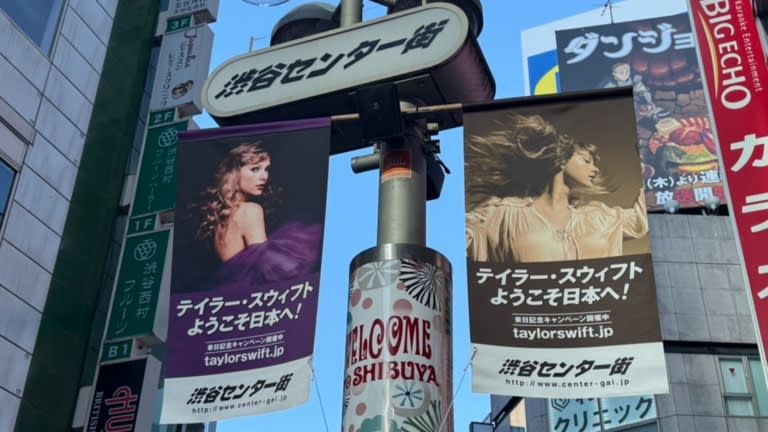
Taylor Swift's music is promoted on the streets of Japan. Photo: Nikkei.
Using Western songs for Japanese TV dramas and movies is another tactic. A song by American rock band OneRepublic will be used as the theme song for "Kaiju No. 8," an anime series scheduled to air in Japan starting next April.
The number of young Japanese going to the United States and Europe to study has declined in recent years, raising concerns that the population is becoming more introverted.
However, in music, young people now pay less attention to physical boundaries and listen to whatever they like. Many people listen to songs used as background music on TikTok without even knowing the artist or where they come from. The chance for a Western song to once again strike a chord with Japanese audiences and create an unexpected buzz is entirely possible.
Source: https://danviet.vn/nguoi-nhat-tre-dan-ngoanh-mat-voi-nhac-au-my-20240326194200619.htm



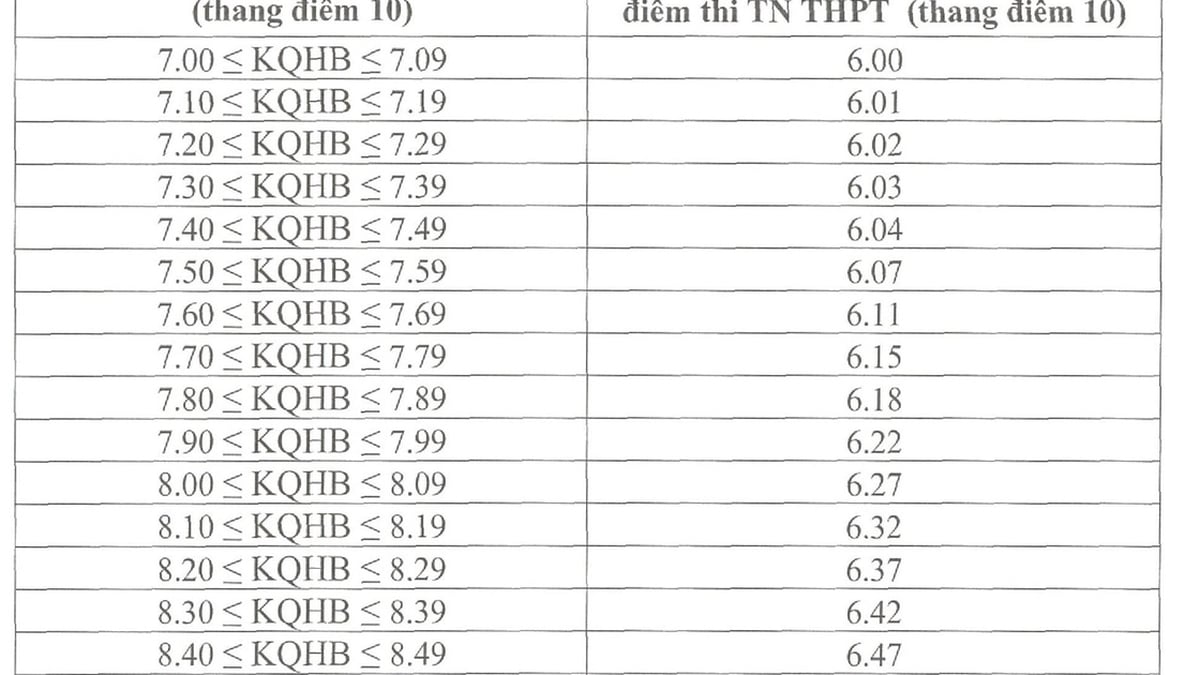



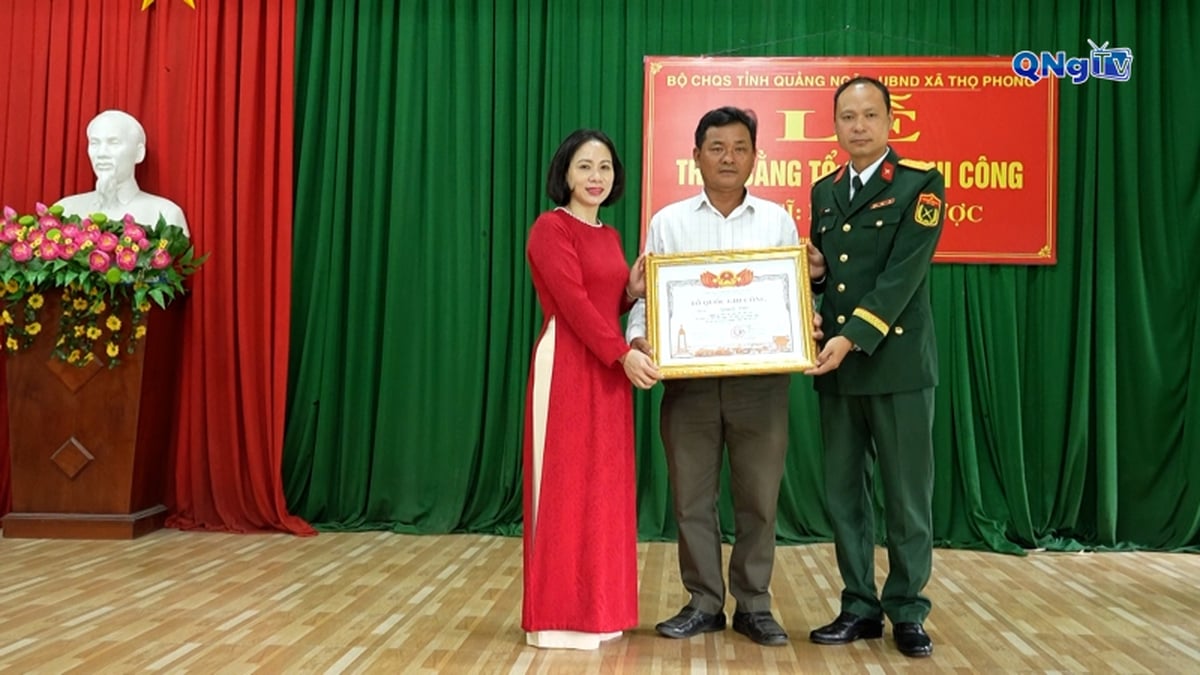



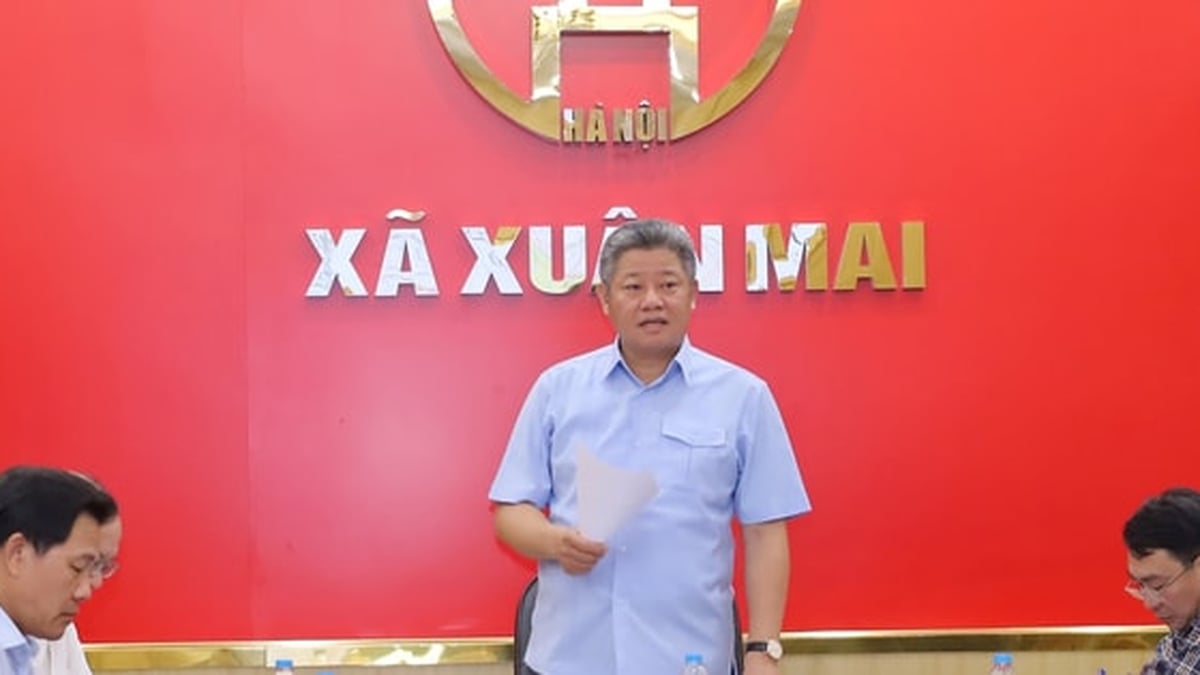



















![[Photo] National Assembly Chairman Tran Thanh Man visits Vietnamese Heroic Mother Ta Thi Tran](https://vphoto.vietnam.vn/thumb/1200x675/vietnam/resource/IMAGE/2025/7/20/765c0bd057dd44ad83ab89fe0255b783)






































































Comment (0)